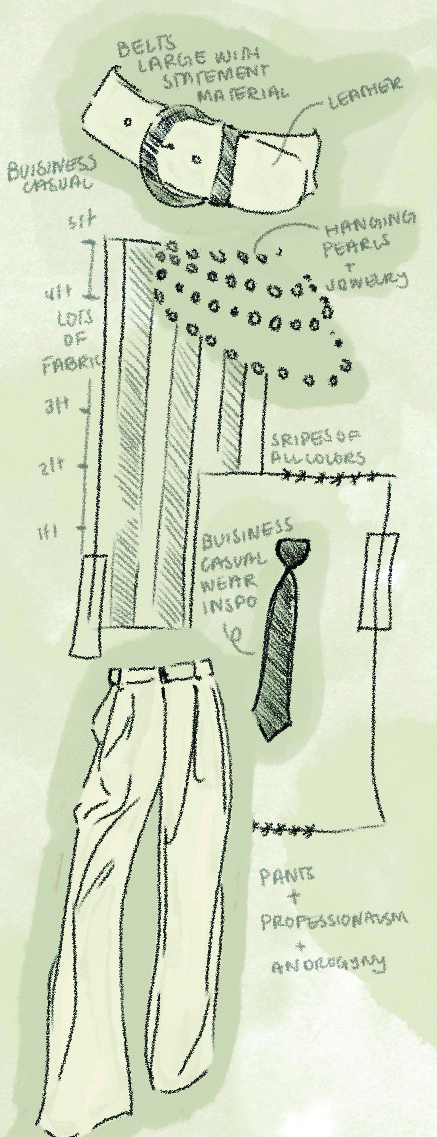By Mikaela ’13 and Isabel ’14
Sophie ’17 and Bree ’17 sit on the floor of room C221, trying to work out a Pre-Algebra problem. The other students in the room cluster wherever they can find an outlet to plug in their laptops, watching videos online, solving problems and help each other understand difficult equations. With two girls in each level of math working together, what one doesn’t understand, the other usually does. It’s the buddy system at its finest.
The Khan Academy math class is an experiment dreamed up by Khan Academy founder Salman Khan, Math Department Head Chris Talone and India ’12. The Khan Academy is an online database of free, ten-minute educational videos, guided by the mission that anyone who wants one should be able to receive a world-class education. India won the 2011 Guerin Prize for her compelling essay about how Khan inspires her. Over the summer, India and Talone travelled to Mountain View, CA to meet with Khan, where the idea of a multilevel, partially online math class was born.
The girls in the class hail from Grades 7-12 and are technically enrolled in various levels of math, including Pre-Algebra, Algebra I, Geometry, Algebra II with Trigonometry, Pre-Calculus Honors, AP Calculus AB and Statistics. Students learn from Khan Academy videos, which are then supplemented with individual coaching from Talone.
“It’s not really teaching! It’s honestly more like tutoring, with me running around the room answering questions,” Talone said.
As Marlborough looks boldly forward to how technology will most effectively enhance and complement student learning in the 21st century, the Khan class represents a significant implementation of the “blended learning” pedagogy that the School has been discussing and experimenting with over the past few years.
Though the class is still in its early stages, Talone has already discovered some of the potential drawbacks of forfeiting decision-making about how mathematical concepts are explained and tested to a third-party website. As students in other math classes begin to hear more about what many perceive to be an easier option graded in a vague or lenient way, and as calls for standardization with the traditional classes increase, it’s become clear that the success of the Khan Academy class will to a certain extent determine how amenable the School will be in the future to experimental technology before seeing concrete evidence that it will work.
WORKING HARD OR …?
Lilia ’15 and Morgan ’15 sit in the back left corner of C221, discussing isosceles triangles, a party last weekend and a boy who didn’t call back. This kind of social atmosphere is common at Marlborough but dies down once a teacher begins to lecture or engage the class in discussion. The Khan Academy class, however, has little formal structure, and the relaxed, lesson-free environment can spur both intense student collaboration and considerable wasted time. The freedoms given to the students in the Khan class frustrate some girls in other math classes, who argue that Khan students do less work and receive higher grades for what appears on a transcript to be a normal class.
Khan students are expected to spend 15-30 minutes per night on the Khan Academy website, either watching videos or completing exercises. Talone is able to see how much time his students spend on the site.
According to math instructor Amanda Kissinger, however, math homework at Marlborough is intended to take up to 45 minutes each night, with even more expected for honors and AP classes. Because the time commitment of students in the Khan class is lower than that for students in traditional classes, some girls are under the impression that the Khan class is less difficult.
“I think it is really unfair,” Katherine ’12 said. “Their class shows up the same [as ours do] on our transcripts, but their class is a lot easier. I have to put in a lot of work taking notes and paying attention in class. ”
On the other hand, some argue the class requires students to delve more deeply into material. If you don’t understand the material or receive less than 100% on a test in a regular class, the teacher moves on regardless, but the Khan class requires students to master every topic. In order to move on to the next lesson, a girl must first correctly answer nine questions in a row from the corresponding online exercises.
“Whether it is a conceptual mistake or a careless mistake, Khan doesn’t care. You have to start over anyway.” Talone said. “On Khan, if they get eight problems right but miss a negative [sign] on the ninth, they have to start over. Normally you can turn in your homework with two mistakes and still get credit.”
Some students in traditional math classes say they are jealous the Khan class is tailored to a student’s strengths and weaknesses.
“If I could direct the speed of my math class, I’d be able to spend more time on things I don’t understand without holding up the class, so I’d probably learn better, and the class would probably be easier,” Pilar ’15 said.
Because of the absolute understanding students need to acquire before moving on, Dean of Faculty and math instructor Sandra O’Connor said she believes the Khan students are learning course material in greater detail.
“You could be mastering the topic more than [you would] in a regular class,” O’Connor said. “[Khan students] have to do a lot more practice problems, because they have to master a topic before they can move on. They might have to, say, do 20 problems of a type where I might get my girls to do four or six.”
HOW DO YOU SOLVE A PROBLEM LIKE BIANCA?
AP Calculus AB student Bianca ’13 is at the SmartBoard, explaining derivatives to Tess ’14 and Sophie ’13. After all, what else is she supposed to do with her time?
Landfield finished the vast majority of her Calculus curriculum in the first week of School. In traditional AP Calculus AB, Bianca would have spent the entire first semester reviewing concepts she had already been tested on the year before in Pre-Calculus Honors.
“I’ve already learned everything, and I would be a thousand times more bored in the regular version of this class,” Bianca said.
But rather than being forced to buckle down with every other AP Calculus AB student and solidify her mastery of the material with nightly homework and periodic tests, Landfield zipped through all of her videos—the equivalent of two semesters of work in a traditional class—and now fills her time tutoring other students.
“Honestly, this is awkward, but I don’t spend any time on homework,” Bianca said.
Some students are wondering why Bianca was allowed to take a class in which she has no work of her own to do.
“I mean, she’s really smart, so I don’t mind, but I guess it’s kind of frustrating that she has no work. I wish I had signed up for that class; it would be really nice to have less work,” Molly ’13 said.
By spending close to all her time working with other students, Landfield embodies what O’Connor and Assistant Head of School Laura Hotchkiss describe as a sister-like mentoring opportunity that furthers this year’s goal of “Strengthening and Celebrating the Community.” Furthermore, the active learning experience of explaining the material to younger students could actually be a more effective method of review than passively taking assessments, doing homework assignments and listening to teachers drone on.
Bianca has said that she enjoys helping younger students but acknowledges that she should probably be in a more challenging environment. “I am kind of bored in that it’s Quarter Two and I haven’t learned anything new,” she said.
EASY A?
Traditionally, math grades are derived from a weighted average of points a student received divided by the total points she could have gotten. But Khan class assessments are done online, where points are not awarded, and part of the point of the class is that mistakes don’t count against you; they are just barometers of whether you are ready to move on to new material. Therefore, Talone has had to develop an entirely new means by which to evaluate the performance of his students.
“I grade them similarly to how an English teacher grades a paper. Usually math grades are quantitative, but because I know them so well I feel that I can grade them qualitatively,” Talone said.
Because his grading policy is new and fairly unorthodox, it had been nearly impossible for students to discern how their grades were being calculated. However, students in the Khan class said that Talone announced shortly before the end of Quarter One that every student would receive an A, an A- or a B+.
Khan student Ali ’14 said she thought these grades were appropriate.
“We all understood the material, so we all deserved the grades we got. Like, everyone who got an A earned it,” Ali said.
Another concern with regard to the relative difficulty of this class is the way in which the students are assessed. In traditional math classes, students are forced to consider multiple concepts at once to solve complex problems that draw upon cumulatively acquired skills. In the Khan class, however, the online videos assume no prior knowledge, and so the exercises are based exclusively on a given video.
Khan students will have to take a midterm and final worth 20% of their semester grades. For now, Hotchkiss said that she would like the girls at each level to take the same exams as those given to students in the analogous traditional classes, but whether or not that will actually happen has yet to be determined.
While the class may seem imperfect in some respects, Talone developed and planned the entire thing in less than two months. Due to the experimental nature of the class, he is still in the process of working out the kinks and determine how best to organize this potentially revolutionary educational experience.
As Tess put it: “It’s just a pilot class!”












